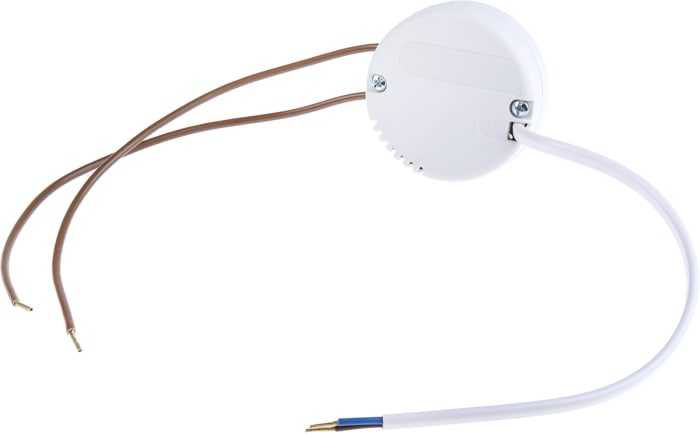RS PRO Lighting Transformer, 230 → 240V ac, 11.4V ac

Technical Document
Specifications
Brand
RS ProPrimary Voltage Rating
230 → 240V ac
Secondary Voltage Rating
11.4V ac
Dimensions
65 (Dia.) x 78 mm
Depth
78 mm
Maximum Temperature
40°C
Weight
682 g
Dimming
Dimming
Dimming Method
Leading Edge
Diameter
65mm
Minimum Operating Frequency
50Hz
Maximum Operating Frequency
60Hz
Product details
Single Output
Low Voltage Lighting Transformers
Dimming Methods (where applicable):
Leading Edge:
The control device is either a thyristor or triac which blocks power until they are switched on by the control signal. At that point the current flows almost instantaneously and continues to flow until the end of the half cycle of the mains waveform. When the signal reaches zero, the device turns off and no more current is passed until it is triggered again. Turning the power on and off in this manner averages out creating a constant intensity level and by altering the precise trigger point over a period of time the lamp can be dimmed.
Trailing Edge:
Since this method of dimming uses transistor technology it is not limited to just switching, therefore current can be controlled gradually. Transistors can be programmed to pass current at the start of each half cycle, and gradually switch off later. This will control the full amount of power reaching the lamp without the side effects of a step increase in current.
Stock information temporarily unavailable.
Please check again later.
P.O.A.
1
P.O.A.
1
Technical Document
Specifications
Brand
RS ProPrimary Voltage Rating
230 → 240V ac
Secondary Voltage Rating
11.4V ac
Dimensions
65 (Dia.) x 78 mm
Depth
78 mm
Maximum Temperature
40°C
Weight
682 g
Dimming
Dimming
Dimming Method
Leading Edge
Diameter
65mm
Minimum Operating Frequency
50Hz
Maximum Operating Frequency
60Hz
Product details
Single Output
Low Voltage Lighting Transformers
Dimming Methods (where applicable):
Leading Edge:
The control device is either a thyristor or triac which blocks power until they are switched on by the control signal. At that point the current flows almost instantaneously and continues to flow until the end of the half cycle of the mains waveform. When the signal reaches zero, the device turns off and no more current is passed until it is triggered again. Turning the power on and off in this manner averages out creating a constant intensity level and by altering the precise trigger point over a period of time the lamp can be dimmed.
Trailing Edge:
Since this method of dimming uses transistor technology it is not limited to just switching, therefore current can be controlled gradually. Transistors can be programmed to pass current at the start of each half cycle, and gradually switch off later. This will control the full amount of power reaching the lamp without the side effects of a step increase in current.
